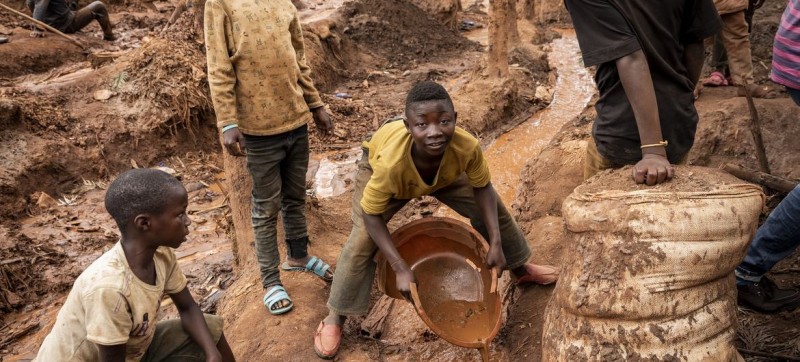Children at work mining for gold in Luhihi village, South Kivu Province in DRC. The resurgence of the M23 armed group has “broad repercussions” for the security, human rights and humanitarian situation in eastern Democratic Republic of the Congo (DRC) and for the wider region, the UN Special Representative there told the Security Council on Wednesday. Bintou Keita, who also heads the UN’s Stabilization Mission in DRC (MONUSCO), said peacekeepers under her command were “determined to protect civilians and help tackle drivers of conflict and violence”. However, she added that “unity of purpose within the Council and among troop and police contributing countries, remains essential for the Mission to deliver on its core mandated responsibilities”.
Rising casualties
As MONUSCO along with the national security forces, known as the Armed Forces of the DRC (FARDC), have redeployed military to the “Petit Nord” to respond to M23 threats, armed groups have sought to take advantage of the resulting security vacuum.
The M23 militia began as a renegade force of army mutineers in 2012, committing atrocities and war crimes. The current offensive against Government forces is reportedly the biggest in a decade.
Increased assaults by Allied Democratic Forces (ADF) militants in North Kivu and Ituri provinces, as well as attacks and reprisals by the Cooperative for Development of the Congo (CODECO) and others militia, have taken a heavy toll on the civilian population, the senior UN official said, noting that between 28 May and 17 June, more than 150 civilians had been killed.
“The humanitarian situation across the eastern provinces has deteriorated, and the overall number of people displaced this year has risen to some 700,000”.
Inciting violence
Meanwhile, rising regional tensions have coincided with a deeply worrying increase in hate speech and incitement to violence, Ms. Keita continued, highlighting at least eight cases of hate speech between May and June that specifically targeted Rwandophones.
She said that while each met the Rabat threshold – a six-part test to assess if a particular statement reaches the level of incitement to discrimination, hostility or violence – at least three came from Congolese military and police authorities.
“The United Nations has been clear in its condemnation of these reprehensible attempts to fuel inter-communal tensions,” she added.
End militant ‘scourge’
Ms. Keita said it was incumbent upon the Security Council to fully support regional efforts to defuse the current diplomatic and security tensions between neighbouring States and “put an end to the scourge of armed groups”.
“Should the M23 continue its well-coordinated attacks against FARDC and MONUSCO with increasing conventional capabilities, the mission may find itself confronted by a threat that goes beyond its current capabilities,” warned the Ms. Keita.
She also cautioned that ongoing militia activities in eastern DRC threaten to reverse hard-won progress in security throughout the country and the region.
Jump start response
The Special Representative updated the ambassadors on a Response Plan for the M23-crisis, which was developed by the Humanitarian Country Team and funded by the Humanitarian Coordinator, who has allocated $5 million from the Humanitarian Fund.
Moreover, the current crisis has triggered a request for the development of a Central Emergency Response Fund (CERF) Rapid Response, to meet civilian needs in Ituri and North Kivu.

UN Special Representative Bintou Keita updates the Security Council on the Democratic Republic of the Congo (DRC).
Paying tribute
In closing, the MONUSCO chief expressed her gratitude for the Council’s continued support, “particularly at a time when the mission is facing challenges to the implementation of its mandate”.
“I salute the bravery and courage of the women and men serving under the United Nations flag, and the commitment of their contributing countries, under these trying circumstances”.
Cries of distress
Julienne Lusenge, President of Female Solidarity for Integrated Peace and Development (SOFEPADI) spoke of a tragedy that has gone on “much too long” and a “siege” that continues to threaten civilians daily.
She cited gruesome details of armed attacks, which included a woman having to cook and eat human flesh and the trauma that often results from such abuses.
The internationally recognized human rights activist also detailed accounts of mothers being forced to “cook dust” and implored the Council to hear their cries of distress.
Click here to watch the meeting in its entirety.




Comments are closed.